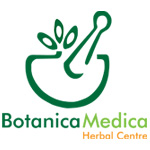Prevention Better Than Cure!
For Alzheimer’s Disease
TAKE-HOME MESSAGE
* The authors of this review discuss the importance of a preventive approach to Alzheimer’s disease in the light of recent unsuccessful trials of disease-modifying treatment. Advances in the development of disease biomarkers and improved understanding of the pathogenesis ( the manner of development of the disease )of Alzheimer’s disease improve the possibilities for disease prevention. While trials are ongoing to evaluate the efficacy of anti-amyloid therapies, there are observational data to suggest that modifiable risk factors may influence disease and lifestyle modification may be beneficial. The use of N-of-1 trials may provide data quickly on the efficacy of personalized prevention plans in improving outcomes. The development of Alzheimer’s disease appears to involve multiple pathways, and hence there may be a variety of ways of preventing or slowing the onset of Alzheimer’s disease. At very least, improved lifestyle will reduce comorbidities ( the presence of additional diseases or disorders co-occurring with a primary disease or disorder ) and improve the likelihood of targeted therapy being successful.
* Alzheimer’s disease may be a condition that takes a lifetime to develop, and individualized plans may ensure optimal brain health as the population ages.
Alzheimer’s disease: A synergistic approach
There has been very limited progress in finding a treatment for Alzheimer’s disease. The drugs that we have to offer have minimal effects. In this paper, Galvin suggests research that incorporates an accumulation of “N-of-1” cohorts, personalized toward known modifiable risk factors to prevent progression to Alzheimer’s disease.
Modifiable risk factors for AD
Risk factor Evaluation
Laboratory Evaluation
Metabolic dysfunction and insulin resistance HgbA1c, fasting insulin
Inflammation C-reactive protein
Dyslipidemia Lipid panel
Homocysteine Homocysteine level
B vitamins B12 level
Hypertension Blood pressure
Sleep-disordered breathing Sleep study
Lifestyle
Obesity % Body Fat/BMI
Psychological, social stressors History
Traumatic brain injury History
Smoking History
Alcohol abuse History
Nutrition History
Medications Review
Remove anti-cholinergic medications Medical review
Protective factors
Mediterranean, plant-based diet rich in omega-3 fatty acids
Modified 12-hour fast (7 PM to 7 AM)
Cognitive and physical exercise
Social engagement
Mindfulness and stress-reduction exercises
Educational attainment and lifelong learning
Optimism and purpose in life
The author describes a case in which this precision approach was used successfully. There have been other small studies showing the potential of reversal of cognitive dysfunction with a similar personalized approach.1 More research needs to be done to understand which of these components has the largest effect.
The therapeutic take-home message is that for a disease as multifactorial and complex as Alzheimer’s disease, the most benefit will likely come from a synergistic, multifocal approach based on the individual’s unique risk until more effective pharmaceutical therapies are discovered.
At Botanica Medica our Naturopaths are well aware of the importance of exercise, a good diet and the effect it can have on your life both physically and mentally. They come across lots of interesting studies and are always updating their knowledge. If you would like to make an appointment with one of our Naturopaths call Botanica Medica on 8271-1827 today. They are only to happy to share the knowledge they have gained through their studies and patient outcomes, and get you feeling better. Botanica Medica is located at 97 Glen Osmond Road, Eastwood and appointments are available Monday to Saturday including some after hours.
Reference
1. Bredesen DE, Amos EC, Canick J, et al. Reversal of cognitive decline in Alzheimer’s disease. Aging (Albany NY). 2016;8(6):1250-1258. https://www.ncbi.nlm.nih.gov/pmc/articles/PMC4931830/
2. Journal of the American Geriatrics Society
Primary Care Written by David Rakel MD, FAAFP


Recent Comments